Joint health is a cornerstone of overall well-being, especially for those leading active lifestyles. Whether you’re an athlete, an active non-athlete, or simply aiming to age gracefully, supporting your joints with the right nutrition is essential. Joint discomfort often arises from inflammation, wear and tear, or nutrient deficiencies. By incorporating specific foods and supplements, you can help protect your joints, alleviate pain, and maintain mobility for years to come.
Joints are complex structures where bones meet, cushioned by cartilage and synovial fluid. They enable movement, absorb shocks, and support your body’s weight. Over time, factors like poor diet, inactivity, injuries, or age-related changes can compromise joint health, leading to inflammation, stiffness, or conditions like osteoarthritis.
The key to joint health lies in reducing inflammation, maintaining cartilage integrity, and supporting the production of synovial fluid. Focusing on maintaining mobility of joints especially as you get older is crucial for their health. Consuming anti-inflammatory foods provide the body with building blocks for cartilage, and minimizes oxidative stress.
While focusing on foods that support joint health is important, so is avoiding those that can cause inflammation. Processed and refined foods, such as white bread, pastries, and sugary snacks, contribute to inflammation through their high glycemic index and lack of nutrients. Sugary drinks and sodas can also promote the production of inflammatory markers, worsening joint discomfort. Trans fats found in margarine, fried foods, and many packaged snacks may increase inflammation and contribute to joint stiffness.
But that’s not all. Excessive alcohol consumption can weaken bone health and exacerbate inflammatory conditions. Reducing processed meats and high-sodium foods is also crucial, as they may lead to water retention and swelling around the joints. Avoiding vegetable oils is important for reducing inflammation and oxidative stress. These oils are high in omega-6 fatty acids and eamples include soybean, corn, sunflower, and safflower oils.
Gluten and dairy from cows can also cause inflammation in the body especially if you have a sensitivity to one or both of these. Food sensitivities often cause systemic inflammation which shows up as joint stiffness and pain. A food allergy test can help determine which foods your body may be reacting negatively to. And choosing whole, minimally processed foods like the ones listed below also helps to minimize these triggers.
FOODS FOR JOINT HEALTH
1. Fatty fish
Fatty fish such as salmon, mackerel, sardines, and trout are rich in omega-3 fatty acids, which have potent anti-inflammatory properties. Omega-3s help reduce joint stiffness, swelling, and pain, particularly in conditions like rheumatoid arthritis. They also promote the health of cartilage by reducing enzymes that degrade it.
Aim for 2–3 servings of fatty fish per week, or consider a high-quality fish oil supplement if fish isn’t a regular part of your diet.
2. Leafy greens
Spinach, kale, Swiss chard, and collard greens are loaded with antioxidants like vitamin C, beta-carotene, and polyphenols. These nutrients combat oxidative stress, which contributes to joint inflammation and cartilage breakdown.
Vitamin K in leafy greens plays a role in bone and joint health by supporting calcium regulation and reducing inflammation.
3. Berries
Blueberries, strawberries, raspberries, and blackberries are antioxidant powerhouses. They contain anthocyanins, compounds that reduce inflammation and protect joint tissues from damage.
Add a handful of berries to your morning oatmeal, smoothie, or yogurt for a delicious, joint-healthy boost.
4. Nuts and seeds
Almonds, walnuts, flaxseeds, and chia seeds are excellent sources of healthy fats, particularly omega-3s and monounsaturated fats. They also provide magnesium, which supports muscle function and reduces inflammation.
Pair a handful of mixed nuts with a piece of fruit for a portable, anti-inflammatory snack.
5. Cruciferous vegetables
Broccoli, Brussels sprouts, cauliflower, and cabbage contain sulforaphane, a compound shown to block enzymes that contribute to joint inflammation. These vegetables also provide a range of vitamins and minerals essential for joint repair and maintenance.
Light steaming preserves their nutritional content while enhancing digestibility.
6. Turmeric
Turmeric is a potent anti-inflammatory spice containing curcumin, which can reduce joint pain and swelling. Its effects are particularly beneficial for those with arthritis.
Add turmeric to soups, curries, or teas, and pair it with black pepper to enhance curcumin absorption.
7. Ginger
Ginger has natural anti-inflammatory and analgesic properties. Studies suggest it can help reduce pain and stiffness in people with osteoarthritis.
Brew fresh ginger tea or incorporate grated ginger into stir-fries, smoothies, or salad dressings.
8. Bone broth
Rich in collagen, glucosamine, and chondroitin, bone broth provides the building blocks for cartilage repair and joint lubrication. It’s also packed with amino acids like glycine and proline, which support connective tissue health.
Sip on homemade or high-quality store-bought bone broth as a warm, nourishing beverage.
9. Citrus fruits
Oranges, grapefruits, lemons, and limes are excellent sources of vitamin C, which is crucial for collagen synthesis. Collagen is a major component of cartilage, ligaments, and tendons.
Start your morning with a glass of water infused with fresh lemon juice for hydration and a vitamin C boost.
10. Whole grains
Oats, quinoa, and brown rice are rich in fiber, which can lower levels of C-reactive protein (CRP), a marker of inflammation associated with joint pain. Whole grains also provide magnesium, which helps relax muscles and reduce stiffness.
Replace refined grains like white bread with whole-grain alternatives to promote joint health.
SUPPLEMENTS FOR JOINT HEALTH
While a nutrient-dense diet is the foundation of joint health, supplements can provide additional support, especially for individuals with specific conditions or deficiencies. Here are 9 supplements that can help to fill in the nutritional gaps and assist with joint health. As always, make sure you consult with your doctor to ensure these supplements are safe before consuming.
1. Glucosamine and chondroitin
Glucosamine and chondroitin are two of the most widely studied supplements for joint health, offering numerous benefits for maintaining cartilage integrity and reducing joint pain. Glucosamine is a natural compound found in cartilage that helps form and repair connective tissues, particularly by supporting the production of glycosaminoglycans, which are essential for cartilage strength and elasticity. It is known to reduce inflammation and alleviate symptoms of osteoarthritis, such as stiffness and discomfort.
Chondroitin, another key component of cartilage, helps retain water within the cartilage matrix, ensuring proper lubrication and shock absorption in the joints. When used together, glucosamine and chondroitin can slow the progression of cartilage breakdown, reduce joint space narrowing, and improve mobility, especially in individuals with osteoarthritis or joint injuries. These supplements are particularly beneficial for those looking to manage joint discomfort without relying heavily on pain medications. Regular supplementation can support long-term joint function, enhance quality of life, and help maintain an active lifestyle.
2. Collagen peptides
Collagen plays a critical role in maintaining joint health by serving as the primary structural protein in cartilage, tendons, and ligaments. Supplementing with collagen, particularly hydrolyzed collagen peptides, provides the building blocks needed for cartilage repair and regeneration. It supports joint integrity by improving the elasticity and strength of connective tissues, reducing the risk of injuries and wear-and-tear damage.
Research suggests that collagen supplementation can alleviate joint pain, particularly in active individuals and those with conditions like osteoarthritis. By stimulating the body’s production of collagen and other proteins critical for cartilage structure, it may also slow the progression of degenerative joint conditions. Additionally, collagen has anti-inflammatory properties, helping to reduce swelling and discomfort in the joints. Easy to incorporate into daily routines, collagen supplements, whether in powder, capsule, or liquid form, offer a natural and effective way to support long-term joint health and mobility.
3. Omega-3 Fatty Acids
Omega-3 fatty acids are renowned for their powerful anti-inflammatory properties, making them a cornerstone nutrient for joint health. Found in fatty fish like salmon, mackerel, and sardines, as well as in fish oil and algae oil supplements, omega-3s help reduce inflammation in the joints by inhibiting the production of inflammatory molecules such as prostaglandins and cytokines. This is particularly beneficial for individuals with conditions like rheumatoid arthritis, where inflammation contributes to pain, stiffness, and joint damage. Omega-3s also support the health of cartilage by reducing enzymes that degrade it and promoting lubrication within the joints, which enhances mobility.
Regular consumption of omega-3 fatty acids has been shown to reduce joint tenderness and swelling, decrease reliance on pain-relieving medications, and improve overall joint function. For athletes, omega-3s can aid in recovery by minimizing exercise-induced inflammation and promoting tissue repair, making them a valuable addition to any joint health regimen.
4. Turmeric (curcumin)
Turmeric is a powerful natural remedy for joint health, primarily due to its active compound **curcumin**, which has strong anti-inflammatory and antioxidant properties. Curcumin works by inhibiting inflammatory enzymes and pathways, such as COX-2 and NF-kB, which are often overactive in joint conditions like arthritis. By reducing inflammation, turmeric can alleviate joint pain, stiffness, and swelling, making it particularly effective for individuals with osteoarthritis or rheumatoid arthritis.
Additionally, curcumin combats oxidative stress by neutralizing free radicals, which can damage joint tissues and accelerate cartilage breakdown. Regular use of turmeric, whether through dietary sources or as a supplement, has been shown to improve joint mobility and reduce discomfort, offering a natural alternative or complement to traditional pain medications. To maximize its benefits, turmeric should be consumed with black pepper or fats to enhance curcumin absorption, making it a practical and versatile addition to a joint health regimen.
5. Vitamin D and Vitamin K
Vitamin D and vitamin K play complementary roles in supporting joint health by promoting strong bones, reducing inflammation, and protecting cartilage. Vitamin D is essential for calcium absorption, helping to maintain bone density and prevent joint stress caused by weakened bones. It also modulates the immune system, reducing inflammation associated with conditions like rheumatoid arthritis. Low levels of vitamin D are linked to increased joint pain and stiffness, making adequate intake crucial for joint comfort and mobility.
Vitamin K, on the other hand, works synergistically with vitamin D by directing calcium to the bones and away from soft tissues, preventing calcification in joints and arteries. This ensures that bones remain strong and cartilage is protected. Together, these vitamins support the structural integrity of bones and joints while reducing inflammation, making them vital nutrients for long-term joint health. For optimal benefits, pair foods rich in these vitamins, like leafy greens and fortified products, with sunlight exposure or supplements as needed.
6. Magnesium
Magnesium is a vital mineral for joint health, offering benefits through its role in reducing inflammation, supporting muscle relaxation, and maintaining bone density. As a natural anti-inflammatory, magnesium helps lower levels of markers like C-reactive protein (CRP), which are often elevated in joint conditions such as arthritis.
It also plays a critical role in muscle and nerve function, helping to alleviate stiffness and tension around the joints, which can enhance mobility and reduce discomfort. Magnesium contributes to bone health by aiding in calcium absorption and preventing calcium deposits in joints, which can lead to pain and stiffness. Additionally, it supports the production of synovial fluid, which lubricates and cushions the joints. Including magnesium-rich foods like nuts, seeds, leafy greens, and whole grains—or supplementing when needed—can improve joint flexibility, reduce inflammation, and support overall joint function.
7. Boswellia Serrata
Boswellia serrata, commonly known as Indian frankincense, is a powerful herbal remedy for joint health, renowned for its anti-inflammatory and pain-relieving properties. The active compounds in Boswellia, particularly boswellic acids, inhibit inflammatory enzymes like 5-lipoxygenase (5-LOX), which are involved in conditions like osteoarthritis and rheumatoid arthritis. This helps to reduce joint swelling, stiffness, and discomfort.
Studies have shown that Boswellia can improve joint mobility and function while slowing cartilage degradation, making it a natural alternative or complement to conventional arthritis treatments. Its antioxidant properties also help protect joint tissues from oxidative stress, which can further damage cartilage. Boswellia supplements are well-tolerated and provide noticeable relief for many, enhancing overall joint health and quality of life. Regular use can support an active lifestyle and potentially reduce dependency on pain medications.
8. Sulfur containing compounds
Sulfur-containing compounds play a critical role in joint health by supporting the structure, function, and repair of connective tissues. Sulfur is an essential component of cartilage, contributing to the synthesis of glycosaminoglycans, which help maintain the elasticity and hydration of cartilage. Compounds like methylsulfonylmethane (MSM) and glucosamine sulfate deliver bioavailable sulfur to the body, aiding in the production of collagen and reducing joint degradation.
Sulfur also helps combat inflammation by modulating pro-inflammatory pathways and supporting antioxidant defenses, such as increasing levels of glutathione, the body’s master antioxidant. This dual action—protecting cartilage and reducing inflammation—makes sulfur-containing compounds particularly beneficial for individuals with osteoarthritis or chronic joint pain. Incorporating these compounds through supplements or sulfur-rich foods like garlic, onions, and cruciferous vegetables can enhance joint flexibility, decrease discomfort, and promote overall joint health.
9. Tart cherry extract
Tart cherry extract is a potent natural remedy for joint health due to its anti-inflammatory, antioxidant, and pain-relieving properties. They contain anthocyanins which are powerful plant compounds with strong anti-inflammatory effects. These compounds inhibit enzymes like cyclooxygenase (COX-1 and COX-2), which are involved in the inflammatory process.
Tart cherry extract is also packed with antioxidants, such as vitamin C and quercetin, which neutralize free radicals. Oxidative stress is a major driver of joint tissue damage and cartilage breakdown, and tart cherries help protect the joints by mitigating this damage.
MY FAVORITE JOINT SUPPLEMENTS
This joint support formula is my go-to after any injury or surgery involving a joint. I am currently taking this now to help combat my frozen shoulder, and I’ve had a lot of success while recovery from knee surgery. It contains several high-quality ingredients listed above including: curcumin, Boswellia serrata, collagen and agmatine sulfate – a sulfur-containing compound. Get yours here.
This is the joint supplement that I take every day regardless of whether I’m recovering from an injury or surgery. It’s made with long bones from grass-fed animals and provides calcium and phosphorus in the ration that it’s found in humans. It also contains Type I collagen and other micronutrients to help enhance cartilage formation. It’s a powerful supplement to improve bone strength and mineralization and support healthy joints. Click here to get yours.
Another supplement that I consume every day is this collagen from Perfect. I add a scoop to my herbal coffee every morning along with other superfood ingredients. I chose this particular brand because when tested for certain contaminants commonly found in collagen supplements such as PFAS, glyphosate and lead, the results came up clean. As the name implies, it’s literally perfect. Stock up on your perfect collagen here.
I started supplementing with tart cherry juice after my knee surgery and created a jello recipe that contains tart cherry juice and collagen to help boost my recovery. While I do love the homemade jello as a quick, refreshing snack, I find these Tart Cherry capsules to be a lot more convenient. I take one before bed as part of my night-time routine because in addition to helping with inflammation it also helps to bring a sense of calm to the body and eases me into sleep. And sleep is one of the best things you can do to help your body recover.
Another daily supplement that I consumed is this D and K combo. According to Consumer Labs, it’s one of the highest quality D+K products on the market with no detections of heavy metals. It also contains sea iodine which supports thyroid function which regulates metabolism. While not directly supporting joint health, iodine does help maintain a healthy weight, proper immune function, and balanced energy levels—all of which reduce stress on the joints. Snag my favorite D+K supplement here.
SUMMARY
Joint health is a multifaceted endeavor that combines a nutrient-rich diet, targeted supplementation, and an active lifestyle. By incorporating anti-inflammatory foods like fatty fish, leafy greens, and berries, and considering supplements such as glucosamine, collagen, and turmeric, you can nourish your joints from the inside out.
Whether you’re managing existing joint issues or taking preventive measures, every bite and supplement can contribute to stronger, more resilient joints. Prioritize your joint health today, and enjoy the freedom of movement for years to come!


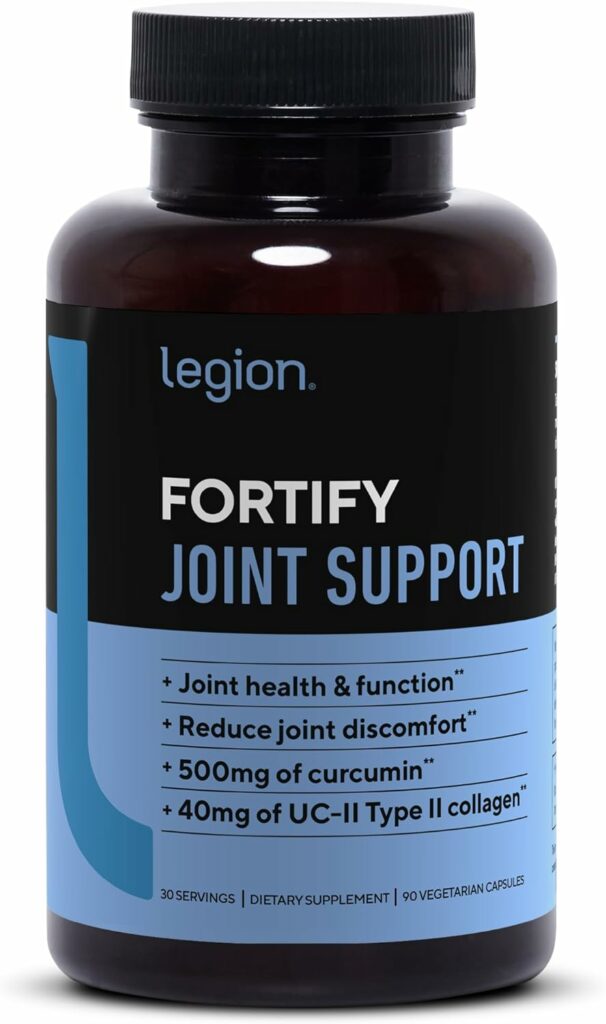
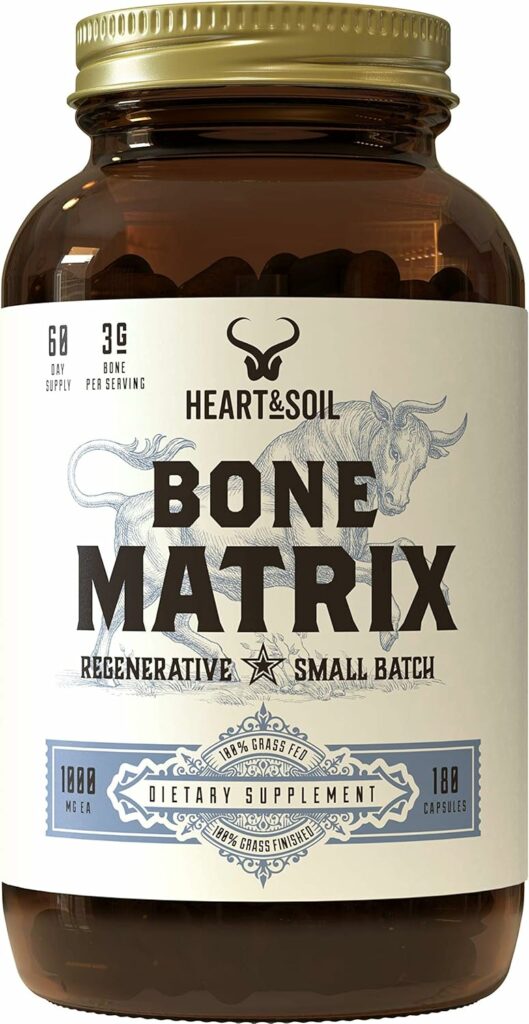
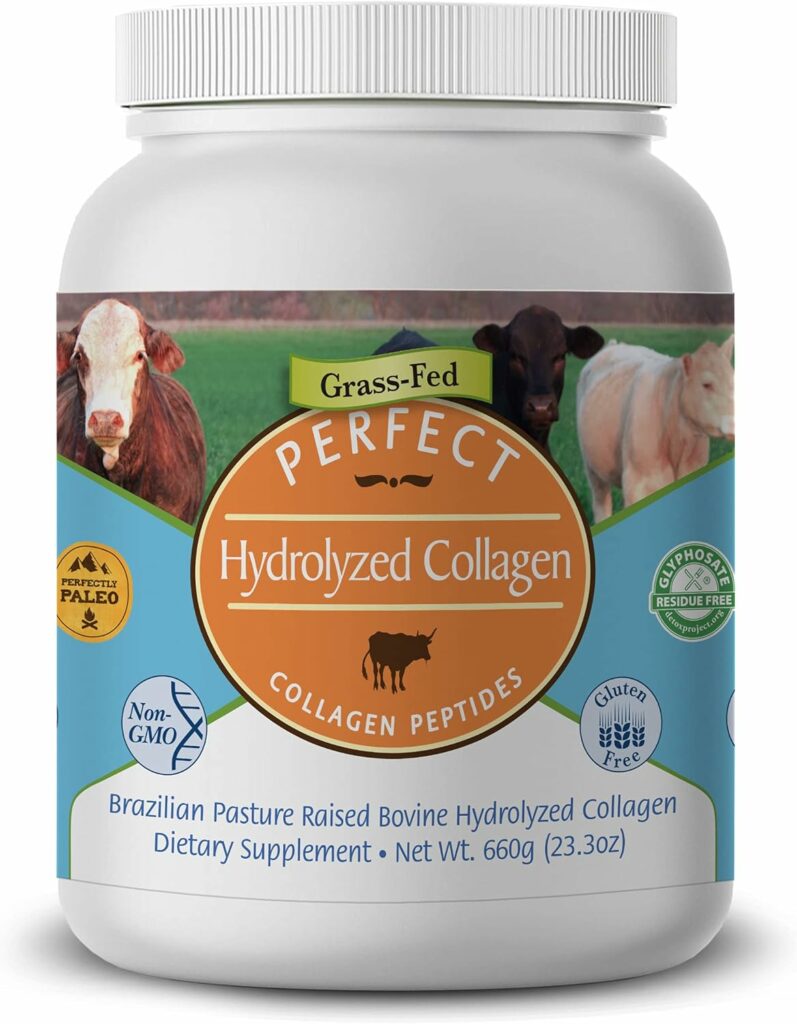
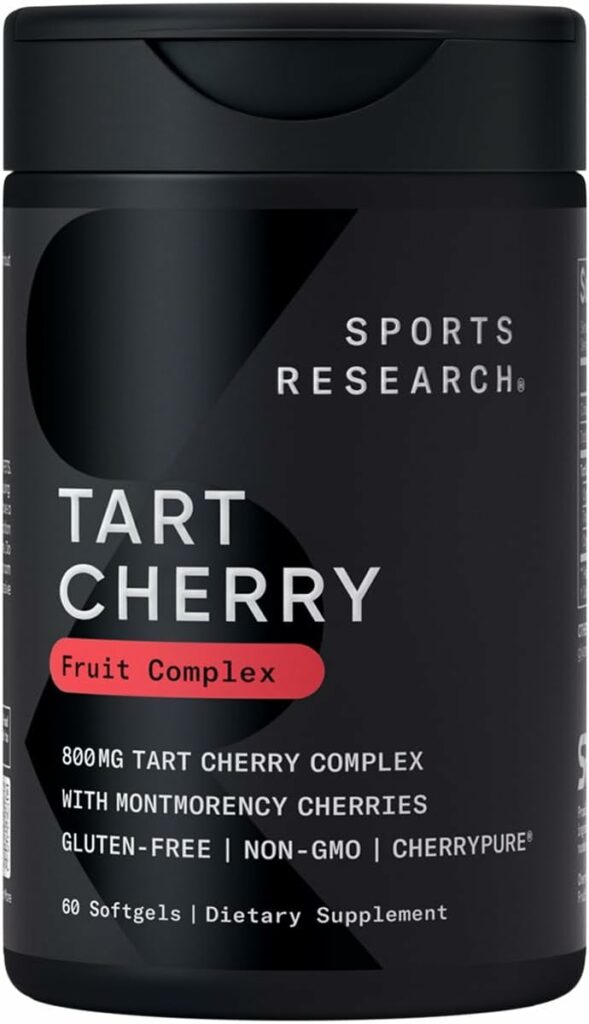
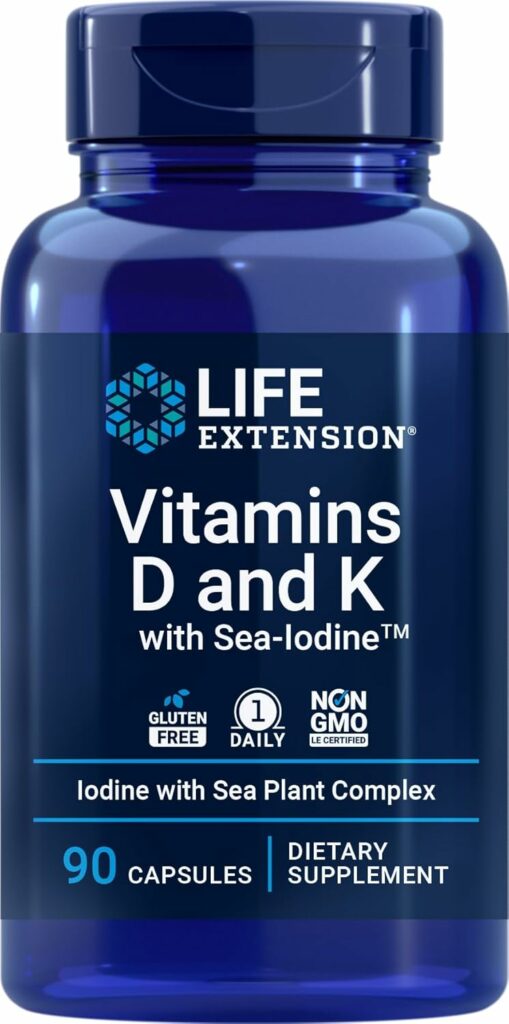






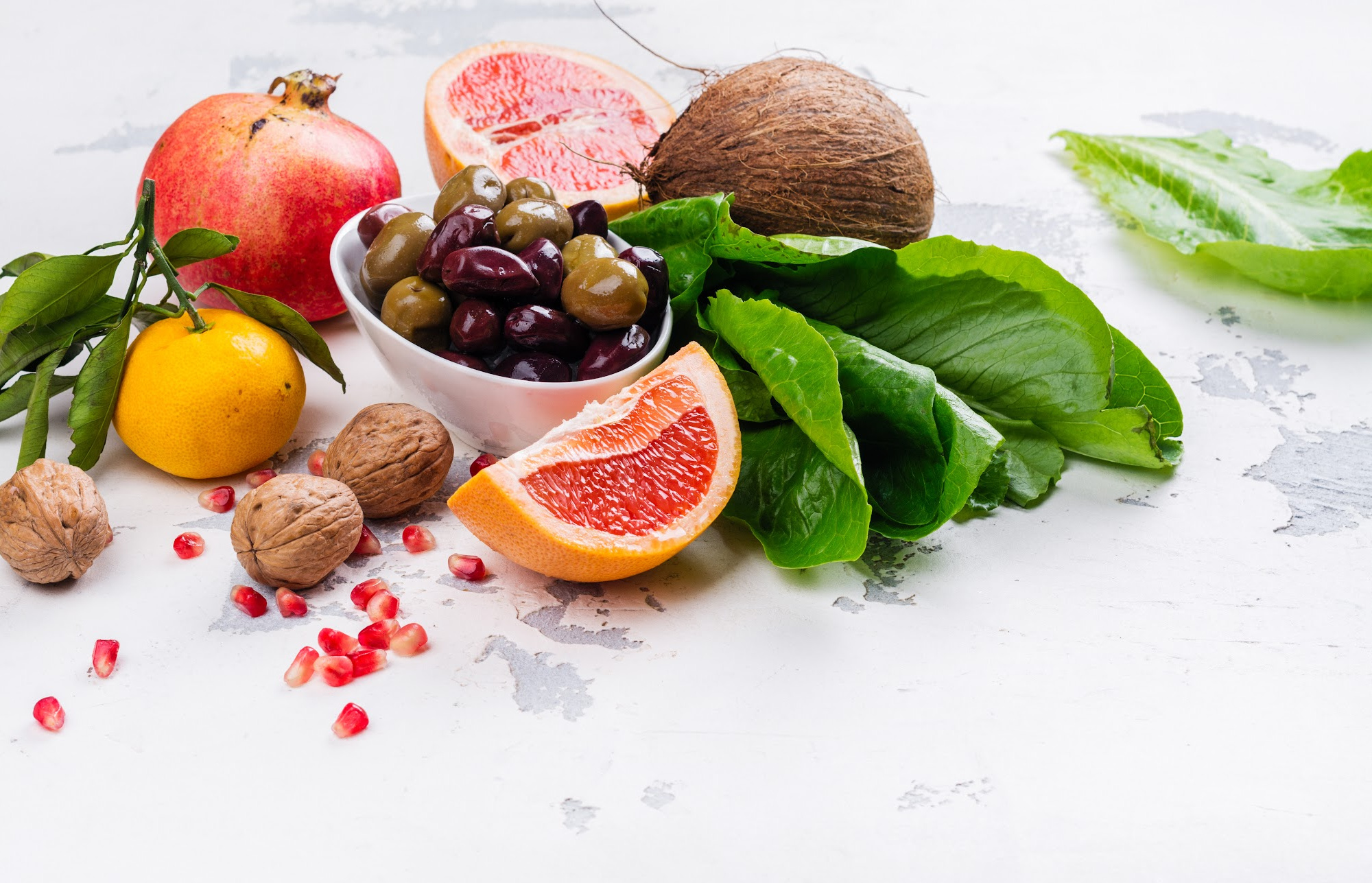





One Comment
Pingback: